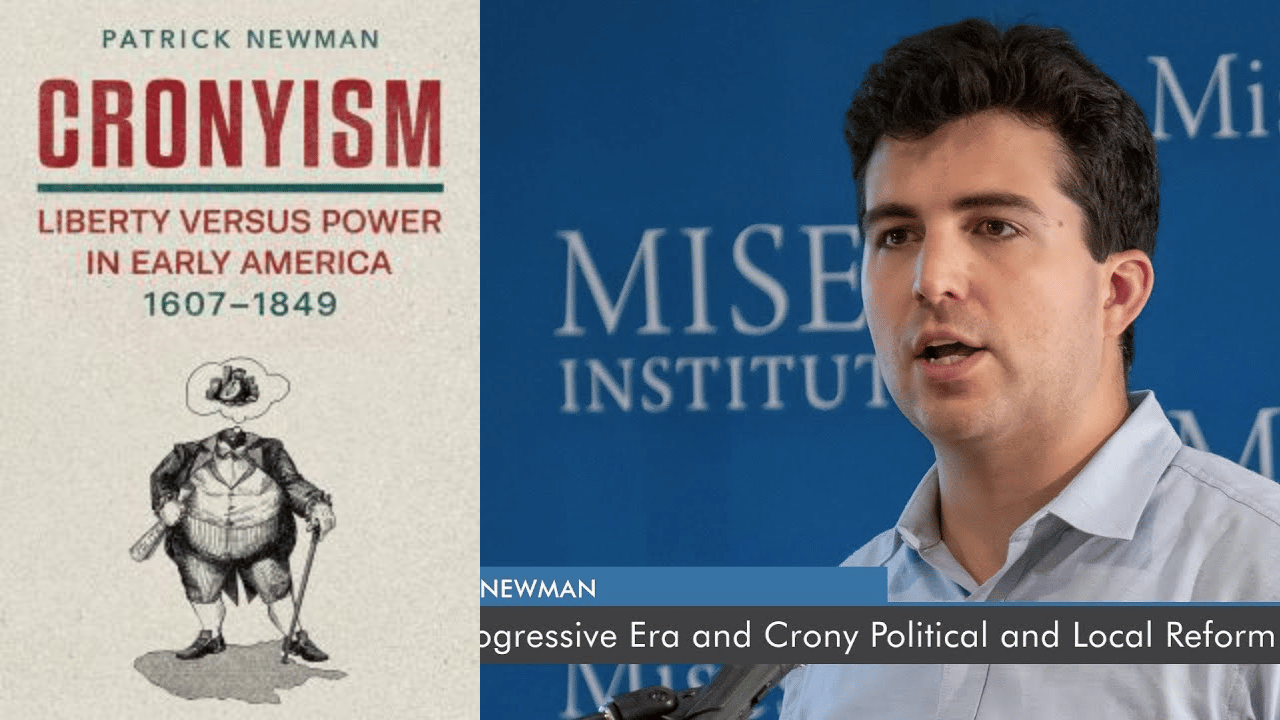Special-interest legislation is inherent in the very nature of government. On the free market, the network of voluntary exchanges, all activity is based on individual liberty and results in mutually beneficial outcomes. The competitive profit and loss mechanism incentivizes individuals to produce goods and services that consumers desire. However, the government, the legitimated monopoly of power, lacks this mechanism and produces outcomes that are harmful to society. The incentive structure is different: unlike the Invisible Hand of the market, individuals that control the coercive Visible Hand are encouraged to pass legislation that benefits themselves at the expense of others. The stronger the government, the more lucrative the rewards. To control the government machinery is to control the levers of cronyism.
Patrick Newman, Ph.D., Cronyism: Liberty vs. Power in America, 1607 – 1849 (Auburn, AL: Mises Institute, 2021) p. 13
Book discussed: Cronyism: Liberty versus Power in Early America, 1607–1849
Dr. Newman on Twitter
Dr. Patrick Newman, a Fellow of the Mises Institute, is assistant professor of economics at Florida Southern College and a Fellow of its Center for Free Enterprise. He completed his PhD in economics at George Mason University.
Podcast: Play in new window | Download









